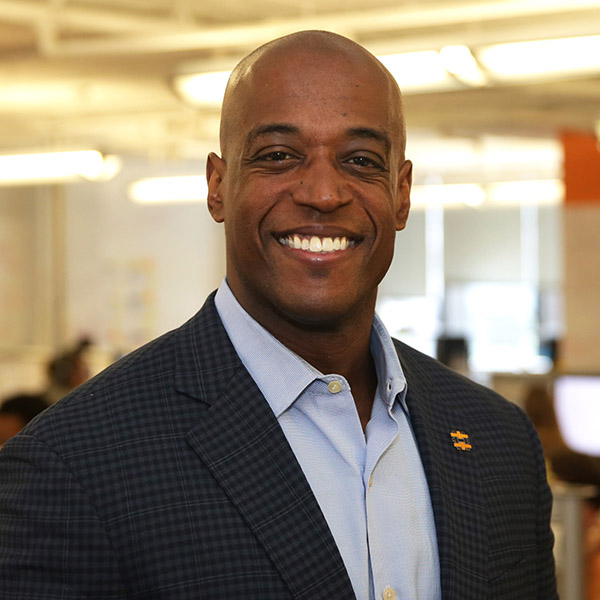As of early December, the World Health Organization (WHO) reported that over 5.2 million deaths were attributed to COVID-19 since the start of the pandemic in 2020. Approximately 45% of this death toll can be attributed to The Americas Region, comprising North, Central, and South America. The United States holds the dubious distinction of leading all countries globally with over 783,000 deaths, while Brazil is in second place with over 615,000 deaths reported.
U.S. Local, State, and Federal Governments in Opposition to One Another
Despite the rising death toll, the U.S. continues to witness an intense vaccine mandate tug-of-war between state and federal governments. In Texas, Governor Abbot continues to rail against the federal government imposing vaccine mandates on the citizens of his state and Florida’s Governor passed stringent laws restricting the power of private employers from mandating vaccines. On the other end of the spectrum, New York City launched the first ever vaccine mandate for all private sector employees in the city by December 27th.
While these city and state governments have opposing viewpoints with regards to vaccine mandates, expect more municipalities to follow some form of stringent mandate, similar to New York City’s model. As more COVID-19 variants continue to thrive, like Omicron, more local governments will realize that for the good of public safety and their economies, the only way forward is boost vaccination rates using regulations and mandates as a tool. Should current executive orders withstand legal scrutiny, we can also predict that the Biden administration will expand vaccine mandates to all private employers, not just those having 100 or more employees, to provide extra legal support for all businesses adapting to the new reality.
The Private Sector is Caught in the Crossfire
Private businesses have taken a pragmatic approach to protect the safety of their workforce, and their financial coffers, in the event their employees decide not to become vaccinated. Ed Bastion, the CEO of Delta Airlines, imposed a $200 monthly surcharge for employees enrolled in the company health plan to counteract the roughly $50,000 per person cost incurred for the average hospital stay by a Delta employee hospitalized due to COVID-19. This surcharge has encouraged many employees to become vaccinated, and we can predict that more private businesses will follow Delta’s lead into 2022. We can also expect more private employers to fight back against employees “gaming the system” to claim vaccine religious exemptions. GE has a 13 question survey employees must complete while applying for a vaccine exemption, including a question inquiring as to whether their religious beliefs prevent them from wearing seat belts or taking Tylenol. Walt Disney has taken the unique approach of employing a spiritual leader to meet with certain employees who claim religious exemptions.
While Amtrak was previously among those firms with very narrow accommodations for religious exemption, they are now among a growing number of firms that have temporarily suspended their vaccine mandate enforcement in the face of labor shortages.
Supply Chain Disruptions Continue
The supply chain disruptions of 2020 forced many companies to rethink their supply chain strategies in 2021, with several creative outcomes emerging. Ford and GM vertically integrated their supply chain to counteract the chip shortage impacting automakers globally by partnering with chip makers to jointly develop chips exclusively for their vehicle lines. Several industry heavy weights like Walmart, Costco, Home Depot, and Amazon began chartering their own cargo ships to prevent the threat of being unable to secure space on vessels with limited cargo space due to increased shipping demands. Amazon took things a step further by constructing their own shipping containers in response to the dwindling supply. Demand for goods, powered by the popularity and ease of e-commerce, will only increase in 2022 so we can expect companies to continue to devise creative ways to overcome supply chain bottlenecks, including diversifying their supplier base and requiring suppliers to stock extra inventory in case of raw material shortages.
The Great Resignation
Perhaps the most interesting phenomenon of 2021 was the realized power of the employee. In what has been labelled The Great Resignation, 2021 saw a record number of employees quit their jobs. The reasons for this rapidly shifting job market varied; some workers were upset with the way their employers handled operations during the pandemic, others sought positions allowing them to work remotely for better work/life balance, many exited the hospitality industry due to low pay and potential exposure to COVID-19, while others took the opportunity to pursue their own business. In fact, the number of self-employed workers has jumped by 500,000 since the pandemic began, bringing the total to 9.44 million. Online marketplaces like Meta, Amazon, Etsy, and food delivery services like Instacart, Uber Eats, Postmates, and Door Dash have created ecosystems where venturing out on one’s own has become more accessible than ever before. In a twist of irony, many employers will find themselves competing for talent not only from their traditional competitors…but from a litany of phone apps! In 2022 we can expect these employers to offer more generous compensation packages, more flexible remote options, and reconsider how office space is being used to attract and retain workers.
The key for business to remain competitive in 2022 can be summed up in one word: adaptation. Employers of all sizes will find that mandating vaccines will be the best way to ensure the health and safety of their workforce, and to control healthcare costs associated with COVID-19 hospitalizations. The Evergiven crises in the Suez canal was a preview of just how interconnected and fragile the global supply chain is; the growing backlog of container ships at ports will continue into 2022 given the ravenous appetite of the global consumer. Supply chain specialists at companies will be in high demand to devise and implement strategies to circumvent potential bottlenecks on the horizon. “Nearshoring”, or locating a portion of the supply chain near a company’s manufacturing facility, will become more popular in 2022 to protect against supply chain logistics delays. 2022 will be the year of the employee, thrusting HR chiefs in the spotlight as they work to attract talent in a rapidly changing world. Adaptation is the key.


